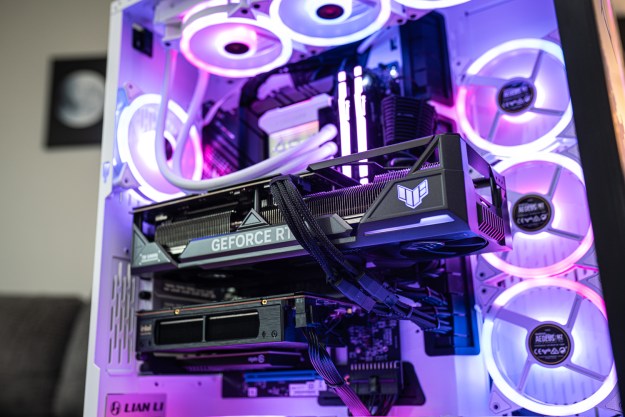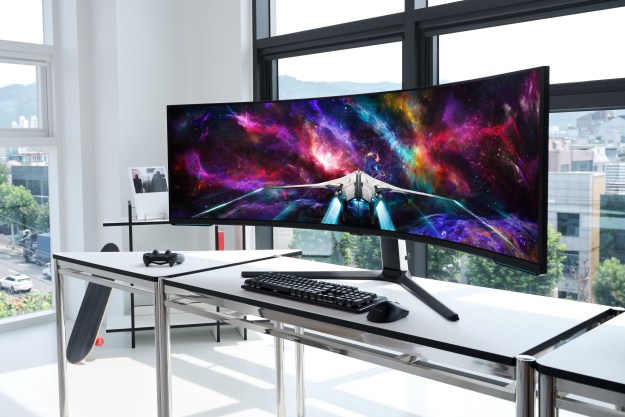
Garry Kasparov vs. Deep Blue

Garry Kasparov, former World Chess Champion and Russian chess grandmaster, has faced off against multiple computer adversaries over the years. In 1996, Kasparov accepted IBM’s challenge to compete against its chess computer, Deep Blue.
At the time, the grandmaster affectionately referred to the computer as “the monster,” according to Time. This first meeting resulted in a 4-2 victory in Kasparov’s favor. Deep Blue did, however, score a pair of wins, marking the first time a computer had won a game against a world champion under tournament rules.
The following year, Kasparov competed against a more advanced Deep Blue computer. The grandmaster resigned after just 19 moves in the final game, with Deep Blue taking the match. Up until this moment, Kasparov had not lost a multi-game match against an individual and the world champion had some fighting words ready for the computer after the competition.
”I think it is time for Deep Blue to prove this was not a single event,” Kasparov told the New York Times. ”I personally assure you that, if it starts to play competitive chess, put it in a fair contest and I personally guarantee you I will tear it to pieces.”
Kasparov got his wish in 2003, when he squared off against Deep Junior. This match ended in a tie, with the two competitors drawing four games and each winning a single game.
Poker AI vs. the poker pros

Poker — a game of luck, intuition, and lies — would seem to favor us finicky, unreliable humans, right? Well, a team of Carnegie Mellon University researchers recently decided to experiment with this hypothesis. In January, four of the world’s top-ranked poker players spent 20 days playing 120,000 hands of heads-up, no-limit Texas Hold’em against a program dubbed Libratus.
As it turns out, the machines may have literally learned to call our bluff. Libratus led from the start of the 20-day stint, however, the humans did mount a strong — albeit, short-lived — comeback, coming within $50,000 of Libratus’ early lead. After all was said and done, Libratus had won by nearly $2,000,000. Considering the vast amount of unknown variables and misinformation (bluffs), this victory showed a tremendous leap for artificial intelligence. However, there is a silver lining for humans with this bitter defeat.
“The computer can’t win at poker if it can’t bluff,” explained Frank Pfenning, head of CMU’s School of Computer Science. “Developing an AI that can do that successfully is a tremendous step forward scientifically and has numerous applications. Imagine that your smartphone will someday be able to negotiate the best price on a new car for you. That’s just the beginning.”
Watson vs. Jeopardy! pros

In 2011, the IBM supercomputer known as Watson appeared on Jeopardy! and took on two of the show’s biggest heavyweights: Ken Jennings and Brad Rutter. Jennings once won 74 games in a row, and Rutter raked in more than $3,000,000 in prize money on the game show.
Watson is a “question answering machine,” meaning it is able to comprehend human language and then methodically retrieve answers in its vast 15-terabyte data bank. The supercomputer is able to perform more than 80 trillion operations in a single second. Needless to say, it doesn’t take a genius — or in this case, a couple of Quizbowl masters — to realize the incredibly low odds of topping Watson.
By the end of the first game, Watson had a hefty lead of more than $30,000. When all was said and done, Watson finished with $77,147 compared to Jennings’ and Rutter’s combined $43,600.
“There’s no shame in losing to silicon,” Jennings said in hindsight. “After all, I don’t have 2,880 processor cores and 15-terabytes of reference works at my disposal. My puny human brain, just a few bucks worth of water, salts, and proteins, hung in there just fine against a jillion-dollar supercomputer.”
Bowler of the Year vs. EARL the Robot

Unlike the imperfect conditions and intuition involved in poker and chess, it would seem as though a machine would easily dominate a mechanical game based on speed and accuracy. In 2010, Chris Barnes, former Professional Bowling Association Player of the Year, squared off against the one-armed bowling bot, EARL (short for Enhanced Automated Robotic Launcher).
This challenge was fresh off the machine’s perfect game. The robo-bowler can hurl a ball down the lane between 10 and 24 miles per hour with up to 900 rotations per minute, making for an exceptional curve.
“He’s able to throw a ball to within a tenth of a mile an hour, a third of a board down the lane, more consistent and more accurate than any human bowler,” explained Neil Stremmel, the managing director of the United States Bowling Congress.
It turns out this exceptional consistency is actually a liability when it comes to bowling, however. EARL continuously aimed for a specific location on the lane, and after a few precise shots, the bowling ball stripped away the oil on certain boards. This slowly changed the trajectory of the shot and resulted in fewer strikes. Barnes, on the other hand, adapted to these gradual changes and felled EARL 259-209. You can watch a video of the match here.
Quackle vs. David Boys

In 2007, former World Scrabble Champion (yes, that’s a thing) David Boys faced off against a computer program called Quackle. The odd thing about this match-up was that there was actually a tournament of computer programs to determine which would have the chance to compete against a human. Quackle defeated the program Maven to reach the final round, and Boys bested 100 other participants in an 18-round humans-only tournament to become the last man standing.
When the man-vs-machine finale kicked off, it looked like the program had met its match, as Boys took a commanding 2-0 lead in the five-game series. However, Quackle eventually staged a comeback by taking the last three games. Using obscure words such as “qadi” and “anuria,” Quackle eventually topped Boys 482-465.
Boys wasn’t too happy after the loss, infamously quipping: “It’s still better to be a human than to be a computer.” You can download Quackle and try your luck against the virtual wordsmith here.
Editors' Recommendations
- AI could replace around 7,800 jobs at IBM as part of a hiring pause
- IBM claims its new processor can detect fraud in real time


